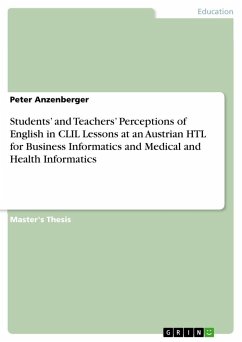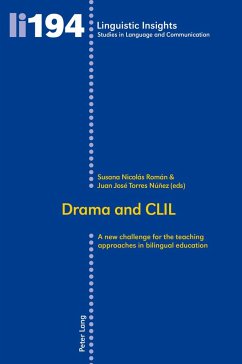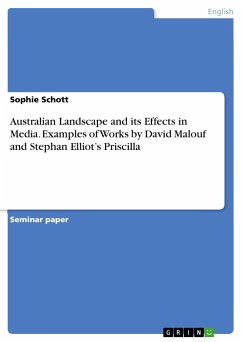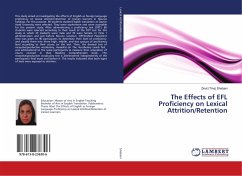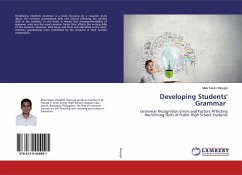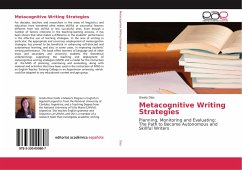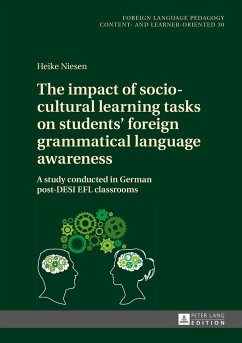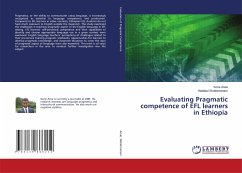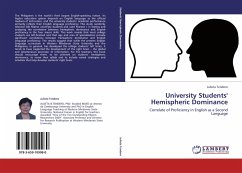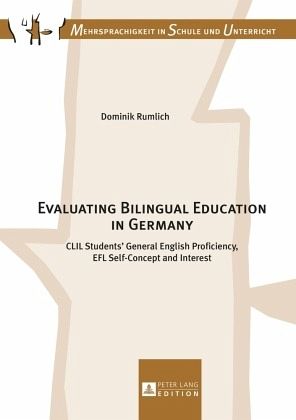
Evaluating Bilingual Education in Germany
CLIL Students' General English Proficiency, EFL Self-Concept and Interest. Dissertationsschrift
Herausgegeben: Breidbach, Stephan
Versandkostenfrei!
Versandfertig in 6-10 Tagen
106,50 €
inkl. MwSt.

PAYBACK Punkte
0 °P sammeln!
The author uses a theoretical account rooted in TEFL, language acquisition and educational psychology to provide the basis for the development of a comprehensive model of language learning in CLIL. It incorporates prior knowledge, EFL self-concept, interest in EFL classes, verbal cognitive abilities and contact to English. This model is used to estimate the effects of CLIL in the context of high-intensity programmes at German Gymnasien. The statistical evaluation of the quasi-experimental data from 1,000 learners proves the existence of large initial differences due to selection, preparation a...
The author uses a theoretical account rooted in TEFL, language acquisition and educational psychology to provide the basis for the development of a comprehensive model of language learning in CLIL. It incorporates prior knowledge, EFL self-concept, interest in EFL classes, verbal cognitive abilities and contact to English. This model is used to estimate the effects of CLIL in the context of high-intensity programmes at German Gymnasien. The statistical evaluation of the quasi-experimental data from 1,000 learners proves the existence of large initial differences due to selection, preparation and class composition effects. After two years, one finds no significant effects of CLIL apart from a minor increase in self-concept, suggesting that the actual effects of CLIL have often been overestimated.



